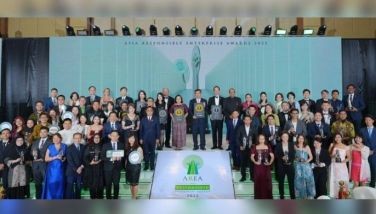De-risking or decoupling, same banana

This year’s Group of Seven (G7) meeting brought to the table a more diplomatic view of China, which in the past years, had been regarded by many of the world’s rich nations as a growing economic threat. Now, the G7 is calling for a de-risking with China, no longer a decoupling.
Such term, however watered down, is still critically viewed as a protectionist stance that goes against earlier championed initiatives of free trade and a liberalized global economy. China had proven that it can become an economic superpower without even being a G7 member, and the Western world’s leading democracies suddenly feel threatened.
Sections 51 and 52 of the issued G7 communique were solely focused on China, and several paragraphs acknowledging just how the G7 had suddenly awakened to its “excessive dependencies” of critical supply chains on China.
The following perhaps best describes how G7 members will be viewing China in the near future: “Our policy approaches are not designed to harm China nor do we seek to thwart China’s economic progress and development. A growing China that plays by international rules would be of global interest. We are not decoupling or turning inwards. At the same time, we recognize that economic resilience requires de-risking and diversifying. We will take steps, individually and collectively, to invest in our own economic vibrancy.”
China is already sending out reactions, which unsurprisingly categorizes de-risking as almost in the same breath as decoupling. In effect, China is saying that the Western world democracies are hostile to China while it only wants to pursue its goals to bring a better life to its own citizens.
More regulations
Whether it’s called de-risking or decoupling, China realizes that G7 members and its allies will continue to come up with more regulations that will throttle many of its short- to mid-term economic growth plans. Foremost of these would be tariffs, which former US president Donald Trump had introduced after 2016.
In more recent years, the push towards divesting from China and relocating anywhere else other than China has become more apparent. China’s rise as the second biggest foreign direct investment destination by multinational companies has definitely spooked the US, although it still remains as the lead.
And lately, tensions have sprung on the technology front, where G7 countries are accusing China of “illegitimate technology transfer or data disclosure,” and thus calling for the protection of “certain advanced technologies that could be used to threaten national security.”
Not far from the discussions on the protection of trade, supply chains, and technology are the concerns about China’s “unilateral attempts to change the status quo” in the East and South China Seas and the threat to “peace and stability” across the Taiwan Strait, as well as other activities that undermine the “security and safety of our communities, the integrity of our democratic institutions and our economic prosperity.”
Retaliatory moves
In response to such moves by the G7, China has pushed ever harder to reduce its dependence on export earnings, and to likewise strive for stability and self-reliance in trade, investments, and technology. China is banking on its huge economy, which is about 80 percent the size of the US’s.
Some world economists are already warning that the G7 declaration would only strengthen China’s economy after being forced to dig deeper into its own resources, both natural and human. As early as 2016, when Trump unleashed its trade war with China, the latter plotted out retaliatory moves not just to survive, but to continue its growth projections.
Already, China has progressed to being the world’s biggest manufacturer and market of electric vehicles, having been able to apply the technological knowledge it has absorbed by giving global vehicle manufacturers the incentives to locate in the country before the turn of the century.
China is forging ahead on many fronts, even as it grapples with the withdrawal of critical information technology by the West. Its agricultural sector remains dynamic, a promise not only of an ability to feed its people, but of being competitive in the export market.
Perhaps the more of worrying reactions by China would be its alignment with Russia, that while maintaining a posture to support peace, has continued to sidestep sanctions imposed by Western countries by condoning the purchase of Russian oil and gas.
Yes, China is not afraid of the G7’s de-risking or decoupling posture. It has its plans all mapped out, and given some adjustments on possible future kinks, is quite confident that it can grow back to being the world’s economic powerhouse.
Taking sides
Where does that leave us? While we can still assume that war will likely not break out in the next two or three years, our current foreign policy is sweeping us deeper into one side of the equation, in a stark reversal of the position that the previous administration had declared.
In fact, we jumped from left to right in the arena of geopolitics in the blink of an eye, wasting not even a second to postulate if there would be some advantages to balancing cordial relationships with China and the US, with an eye perhaps on harvesting beneficial deals from both.
Then again, perhaps it really is time to say enough is enough to China’s continuing activities in the South China Sea, especially in areas that the Philippines and other Southeast Asian countries continue to contest. The big question, though, remains: Can the US really stop China from expanding its construction of ports, military installations, and airstrips in the contested areas?
Facebook and Twitter
We are actively using two social networking websites to reach out more often and even interact with and engage our readers, friends and colleagues in the various areas of interest that I tackle in my column. Please like us on www.facebook.com/ReyGamboa and follow us on www.twitter.com/ReyGamboa.
Should you wish to share any insights, write me at Link Edge, 25th Floor, 139 Corporate Center, Valero Street, Salcedo Village, 1227 Makati City. Or e-mail me at reydgamboa@yahoo.com. For a compilation of previous articles, visit www.BizlinksPhilippines.net.
- Latest
- Trending



























